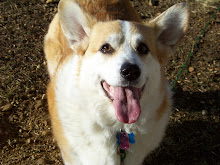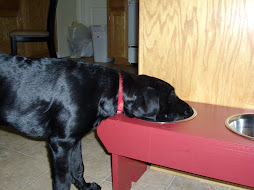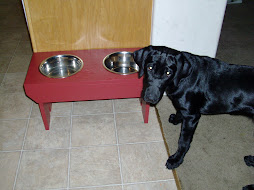
Protect Your Pet from Winter's Woes
In many areas, winter is a season of bitter cold and numbing wetness. The Humane Society of the United States urges pet owners to take extra precautions this winter to ensure the safety of their companion animals.
"Animals rely solely on their human caregivers for safety and comfort — especially during the winter months," said Stephanie Shain, director of companion animal outreach for The HSUS. "Our pets are particularly vulnerable during this frigid season, and with just a few extra precautions you can help make sure that they stay safe and healthy."
Help your pets remain happy and healthy during the colder months by following these simple guidelines.
* Don't leave dogs outdoors when the temperature drops. Most dogs, and all cats, are safer indoors, except when taken out for exercise. Regardless of the season, shorthaired, very young, or old dogs and all cats should never be left outside without supervision. Short-coated dogs may feel more comfortable wearing a sweater during walks.
* No matter what the temperature, windchill can threaten a pet's life. A dog or cat is happiest and healthiest when kept indoors. If your dog is an outdoor dog, however, he/she must be protected by a dry, draft-free doghouse that is large enough to allow the dog to sit and lie down comfortably, but small enough to hold in his/her body heat. The floor should be raised a few inches off the ground and covered with cedar shavings or straw. The house should be turned to face away from the wind, and the doorway should be covered with waterproof burlap or heavy plastic.
* Pets who spend a lot of time outdoors need more food in the winter because keeping warm depletes energy. Routinely check your pet's water dish to make certain the water is fresh and unfrozen. Use plastic food and water bowls rather than metal; when the temperature is low, your pet's tongue can stick and freeze to metal.
* Warm engines in parked cars attract cats and small wildlife, who may crawl up under the hood. To avoid injuring any hidden animals, bang on your car's hood to scare them away before starting your engine.
* The salt and other chemicals used to melt snow and ice can irritate the pads of your pet's feet. Wipe the feet with a damp towel before your pet licks them and irritates his/her mouth.
* Antifreeze is a deadly poison, but it has a sweet taste that may attract animals and children. Wipe up spills and store antifreeze (and all household chemicals) out of reach. Better yet, use antifreeze-coolant made with propylene glycol; if swallowed in small amounts, it will not hurt pets, wildlife, or your family.
Probably the best prescription for winter's woes is to keep your dog or cat inside with you and your family. The happiest dogs are those who are taken out frequently for walks and exercise but kept inside the rest of the time.
Dogs and cats are social animals who crave human companionship. Your animal companions deserve to live indoors with you and your family.
I'll be barking to you later!












No comments:
Post a Comment